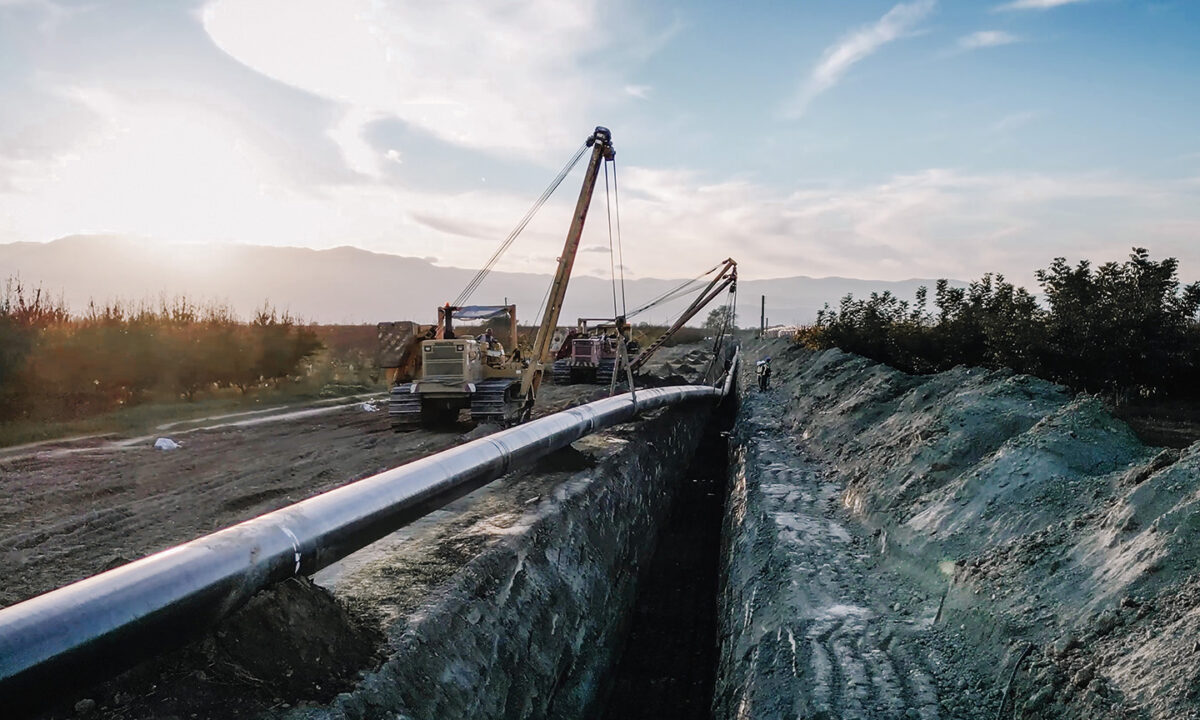
Hy2Market Regional Highlight: Western Macedonia
As part of the Hy2Market project, Western Macedonia is one of the participating regions in the project. Western Macedonia, located in northwestern Greece, has long been the “energy heart” of the country, historically generating over 75% of Greece’s electricity from its extensive lignite reserves. In alignment with Greece’s revised National Plan for Energy and Climate (NPEC) and the European Green Deal, the region is transitioning to a sustainable energy future, phasing out lignite-fired power plants by 2028. As part of the EU’s 100 Climate Neutral Cities by 2030 initiative, including its capital Kozani, Western Macedonia is embracing renewable energy, green hydrogen projects, and energy storage technologies to achieve climate neutrality. This ambitious transition is supported by significant funding from the Greek Government, the EU, and the Just Transition Mechanism, focusing on structural changes to create a low-carbon, circular economy. By leveraging its energy expertise, workforce skills, and industrial history, the region aims to become a green energy hub, serving as a model for other coal-dependent European regions in achieving sustainable economic development and climate resilience.
The region’s transformation into a hub for sustainable energy and environmental solutions relies heavily on fostering collaboration and leveraging regional strengths. At the forefront of this effort is CluBE (Cluster of Bioeconomy and Environment of Western Macedonia), a non-profit regional organization established by local actors and stakeholders to promote synergies and innovation. With a mission to advance bioeconomy and environmental initiatives, CluBE actively enhances regional expertise while developing research, development, and business activities to reinforce the bioeconomy and green hydrogen technologies. As a catalyst for sustainable development, CluBE is integral to Western Macedonia’s journey toward becoming a leader in green energy and environmental resilience.
Building on its commitment to fostering innovation and supporting the energy transition, CluBE actively participates in diverse initiatives and projects that drive regional development and align with global sustainability goals. Through the participation in the Hy2Market project, representing Western Macedonia, CluBE aims to evaluate hydrogen applications, including compression solutions, hydrogen use in power plants, and analyzing hydrogen quality requirements, while actively collaborating on data sharing to enable practical implementation.
In addition, CluBE participates in the LIFE GREENH2ORN project, which will implement the first operating Green Hydrogen Refuelling Station (HRS) with on-site hydrogen production via electrolysis in Greece and specifically in the city of Kozani, embedding sustainable/zero emission mobility. GREENH2ORN will demonstrate the potential for local production, distribution and use of green hydrogen in the mobility sector, namely for heavy, medium and light-duty vehicles. It focuses on the production of green hydrogen via electrolysis, and its use as a fuel for municipal fleets.
Another initiative is the GreenSkillsforH2 (European Hydrogen Skills Alliance) project, which focuses on the creation of a sustainable Hydrogen Skills Strategy and developing vocational education and training (VET) programs to upskill and reskill the workforce affected by the energy transition. CluBE plays a pivotal role in the project in designing and implementing training programs, such as hydrogen summers schools, hydrogen masterclasses and technical seminars in Western Macedonia.
A significant broader development in the region is the Western Macedonia pipeline, which will be the first high-pressure transmission gas pipeline in Greece, certified to transport up to 100% hydrogen and one of the first in Europe, as part of the European Hydrogen Backbone. Once the construction carried out on behalf of DESFA is completed, the pipeline will provide a technically and economically feasible solution for the safe transportation of hydrogen at high pressures through large diameter and high strength steel pipelines. It is designed to be capable to safely carry 100% hydrogen at a later stage. Τhe goal is to ensure that the network is 100%-ready for the transport and storage of renewable gases, such as hydrogen and biomethane. The natural gas pipeline covers Greece’s northern region of Western Macedonia with a total length of 163 km of coated steel pipes. According to the EHB, 60% could be repurposed by 2040, while according to pipeline projects in the works, this currently accounts for 40%.

Image Source: © IPLOCA, from the article “Main contractor AVAX S.A. completes 47% of major high-pressure pipeline in Greece,” available at IPLOCA.com.